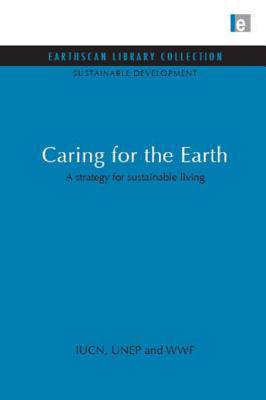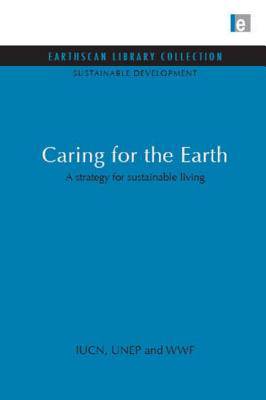
- Afhalen na 1 uur in een winkel met voorraad
- Gratis thuislevering in België vanaf € 30
- Ruim aanbod met 7 miljoen producten
- Afhalen na 1 uur in een winkel met voorraad
- Gratis thuislevering in België vanaf € 30
- Ruim aanbod met 7 miljoen producten
Caring for the Earth
A strategy for sustainable living
The World Coservation Union (Iucn), Unep, WwfOmschrijving
'This is a strategy for a kind of development that provides real improvements in the quality of human life and at the same time conserves the vitality and diversity of the Earth. The goal is development that will be sustainable. Today it may seem visionary. but it is attainable. To more and more people it also appears our only rational option.' - from Chapter 1 in 1980, the International Union for Conservation of Nature and Natural Resources, the United Nations Environment Programme and the World Wide Fund for Nature, the world's three most powerful organizations dedicated to preventing environmental catastrophe, published the World Conservation Strategy.
It stressed the interdependence of conservation and development, it gave currency to the idea of sustainable development and it made the point that unless the vitality and productivity of the planet are safeguarded, the future for humanity is at risk. Its impact was immediate and worldwide.
Now, ten years later, the same three organizations have formulated a new strategy for the 19905. Caring for the Earth builds on all that has been learned in the last decade about the complexity of the problems and shows how radical and far-reaching are the actions and objectives needed to meet them. Nothing less than a new ethic is required, based on affirming the community of life and cherishing its diversity - an ethic which has to be reflected in our personal attitudes and the organization of our communities as much as in wider policies. Public participation is essential for the success of the strategy, which is addressed to individuals and citizens' groups as well as to governments - whatever their systems. Adopting it will not be easy, but it does provide the agenda for immediate action. Originally published in 1991
Specificaties
Betrokkenen
- Auteur(s):
- Uitgeverij:
Inhoud
- Aantal bladzijden:
- 236
- Taal:
- Engels
- Reeks:
Eigenschappen
- Productcode (EAN):
- 9781844079360
- Verschijningsdatum:
- 1/10/2009
- Uitvoering:
- Hardcover
- Formaat:
- Genaaid
- Afmetingen:
- 156 mm x 234 mm
- Gewicht:
- 512 g

Alleen bij Standaard Boekhandel
Beoordelingen
We publiceren alleen reviews die voldoen aan de voorwaarden voor reviews. Bekijk onze voorwaarden voor reviews.











